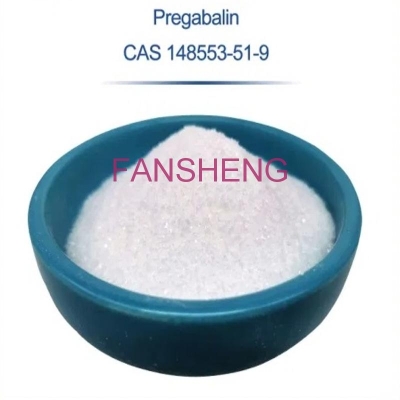J CEREBR BLOOD F M: Brain temperature regulation in patients with subcavity hemorrhage of the cobweb synob
-
Last Update: 2020-05-29
-
Source: Internet
-
Author: User
Search more information of high quality chemicals, good prices and reliable suppliers, visit
www.echemi.com
Increased body temperature (Tcore) after subcavity bleeding (SAH) of the cobweb sympathic membrane is associated with adverse prognosis in patientsThe temperature of the brain (Tbrain) is usually higher than that of TcoreHowever, the clinical significance of this difference (Tdelta) remains unclearA recent study published in the journal Of Cerebral Vascular and Metabolic Diseases, The Journal of Cerebral Vascular and Metabolic Diseases, explores larger Tdelta-related factors and their correlation with patient outcomesresearchers included 46 SAH patients who received multi-module neural monitoring, monitoring a total of 7879h, and obtained average data on these patients, Tcore, Tbrain, cerebral blood flow, cerebral perfusion, intracranial pressure, and brain metabolism (CMD)The three-month good functional prognosis was defined as an improved Rankin score of 2Tbrain is closely related to Tcore (r.948, p.01), and Tbrain is higher than Tcore during 73.7% of nerve monitoring (Tdelta is .18 degrees C, IQR is -0.01 to 0.37 degrees C)Larger Tdeltaist is associated with better metabolic status, as reflected in lower CMD-glutamate (p.0.003) and CMD-lactate (p0.001) and lower mitochondrial dysfunction (MD) risk (OR-0.2, p 0.001)During MD, Tdelta is significantly reduced (0C, IQR is -0.2 to 0.1; p 0.001)Larger Tdelta is associated with a prognosis improvement (OR?7.7, p-0.002), the results suggest that Tbrain is associated with metabolic activity in the brain, and that tbrain outperforms Tcore when the grain function is normalFurther research is needed to clarify how Tdelta acts as an alternative indicator of brain function and to predict the clinical process and outcome after SAH
This article is an English version of an article which is originally in the Chinese language on echemi.com and is provided for information purposes only.
This website makes no representation or warranty of any kind, either expressed or implied, as to the accuracy, completeness ownership or reliability of
the article or any translations thereof. If you have any concerns or complaints relating to the article, please send an email, providing a detailed
description of the concern or complaint, to
service@echemi.com. A staff member will contact you within 5 working days. Once verified, infringing content
will be removed immediately.







